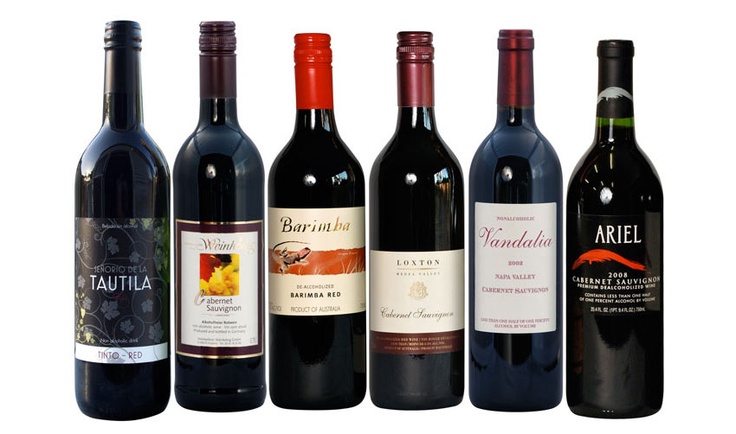In recent years, non-alcoholic wines have gained remarkable popularity across the globe. As more people are making conscious lifestyle choices, the demand for healthier and alcohol-free alternatives has grown. Non-alcoholic wines offer the same sophistication, taste, and experience as traditional wines, but without the intoxicating effects of alcohol. This makes them a preferred choice for individuals who wish to enjoy the flavors of wine while avoiding alcohol for personal, medical, or cultural reasons. Whether you’re someone who wants to maintain a healthy lifestyle, a designated driver, or simply someone curious about exploring new beverages, non-alcoholic wines provide an excellent alternative.
What Are Non-Alcoholic Wines?
Non-alcoholic wines are beverages made using the same grapes and winemaking techniques as traditional wines. The key difference lies in the final process, where the alcohol content is either removed or significantly reduced. This is often achieved through methods such as vacuum distillation, reverse osmosis, or spinning cone technology. These processes preserve the flavors, aromas, and textures of wine while reducing the alcohol level to less than 0.5%. The result is a beverage that tastes remarkably similar to traditional wine but offers a healthier and more inclusive drinking option.
The Growing Popularity of Non-Alcoholic Wines
The shift toward healthier lifestyles has contributed significantly to the growth of the non-alcoholic wine market. More people are choosing mindful drinking habits and reducing alcohol consumption to improve overall health, mental clarity, and physical performance. This growing awareness has encouraged wineries to innovate and create high-quality non-alcoholic options. Restaurants, bars, and retailers are also increasingly stocking non-alcoholic wines to cater to a wider range of customers. What was once considered a niche category has now become a mainstream choice, embraced by people of all ages and backgrounds.
Health Benefits of Non-Alcoholic Wines
One of the biggest advantages of non-alcoholic wines is the potential health benefits they offer. Since alcohol consumption can have harmful effects on the liver, heart, and brain, avoiding it can significantly improve overall well-being. Non-alcoholic wines are often lower in calories compared to regular wines, making them a better choice for individuals watching their weight. Additionally, they retain many of the antioxidants and polyphenols found in grapes, which are known to promote heart health, reduce inflammation, and support immune function. Choosing non-alcoholic wines can therefore be a great way to enjoy the pleasures of wine while maintaining a healthier lifestyle.
Varieties of Non-Alcoholic Wines
Just like traditional wines, non-alcoholic wines come in a wide range of varieties to suit different tastes and preferences. These include red, white, rosé, and sparkling wines.
- Red Non-Alcoholic Wines are rich in flavor, often offering notes of dark fruits like blackberry and plum, along with hints of oak or spice.
- White Non-Alcoholic Wines tend to be crisp and refreshing, with flavors ranging from citrus and apple to tropical fruits.
- Rosé Non-Alcoholic Wines are light and versatile, often featuring floral and berry notes, making them perfect for warm weather.
- Sparkling Non-Alcoholic Wines are popular for celebrations, offering the effervescence and elegance of champagne without the alcohol content.
This wide variety ensures that there is a non-alcoholic wine suitable for every occasion, meal, or mood.
Who Can Enjoy Non-Alcoholic Wines?
Non-alcoholic wines are designed for anyone who wants to enjoy the ritual of drinking wine without consuming alcohol. They are especially suitable for:
- People who are health-conscious and prefer avoiding alcohol.
- Pregnant women who want to enjoy the taste of wine safely.
- Individuals on medication that does not allow alcohol consumption.
- Drivers or professionals who need to remain clear-headed.
- People observing cultural or religious restrictions on alcohol.
This inclusivity makes non-alcoholic wines a universal beverage option, accessible to almost everyone.
How to Pair Non-Alcoholic Wines with Food
Food and wine pairing is an art, and this extends beautifully to non-alcoholic wines. Just like traditional wines, they enhance the dining experience by complementing the flavors of various dishes.
- Red Non-Alcoholic Wines pair well with hearty meals such as grilled meats, pasta, or stews.
- White Non-Alcoholic Wines go perfectly with seafood, salads, and light poultry dishes.
- Rosé Non-Alcoholic Wines are versatile and pair nicely with Mediterranean dishes, cheese platters, or fresh fruits.
- Sparkling Non-Alcoholic Wines are great for desserts, appetizers, and celebratory toasts.
Pairing meals with non-alcoholic wines not only elevates the dining experience but also allows everyone at the table to join in the enjoyment.
The Social and Cultural Impact of Non-Alcoholic Wines
Non-alcoholic wines have also changed the way people approach social gatherings. In many cultures, wine plays a central role in celebrations, ceremonies, and meals. However, not everyone is comfortable or able to consume alcohol. Non-alcoholic wines provide an inclusive alternative, allowing everyone to participate without feeling excluded. This inclusivity makes them an excellent choice for weddings, corporate events, and family gatherings. They promote responsible drinking habits while ensuring that social experiences remain enjoyable and memorable.
How Non-Alcoholic Wines Are Made
The production of non-alcoholic wines begins in the same way as traditional wines, using high-quality grapes and fermentation techniques. Once the wine is made, the alcohol removal process begins. The most common methods include:
- Vacuum Distillation – where alcohol is evaporated at low temperatures, preserving the wine’s flavor.
- Reverse Osmosis – a filtration process that separates alcohol from the wine while retaining aroma compounds.
- Spinning Cone Technology – where centrifugal force separates the alcohol from the wine without compromising flavor.
These advanced methods ensure that non-alcoholic wines retain their authentic taste and aroma, offering a genuine wine experience.
The Future of Non-Alcoholic Wines
With the rise of wellness trends and mindful drinking, the future of non-alcoholic wines looks extremely promising. More wineries and beverage companies are investing in research and technology to create better-tasting and more diverse options. The global non-alcoholic wine market is expected to continue expanding, driven by the increasing number of people choosing healthier lifestyles. As innovation continues, consumers can look forward to an even greater selection of high-quality, flavorful non-alcoholic wines in the years to come.
Conclusion
Non-alcoholic wines are more than just a substitute for traditional wines—they are a celebration of taste, culture, and inclusivity without the effects of alcohol. They provide the same sophistication, variety, and enjoyment while supporting healthier lifestyles and social inclusivity. Whether you are exploring them for health reasons, personal choice, or curiosity, non-alcoholic wines are a refreshing and versatile option that fits perfectly into modern living. Their growing popularity reflects a cultural shift toward mindful consumption and a desire for beverages that are both enjoyable and beneficial. As the world embraces this change, non-alcoholic wines are here to stay, offering the best of both worlds: flavor and wellness combined.





